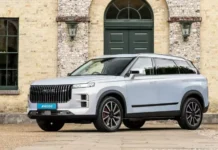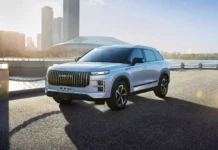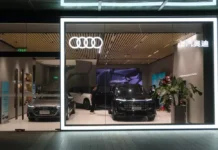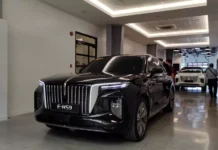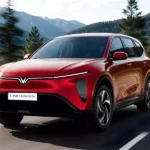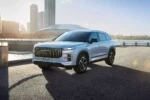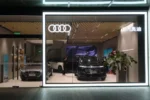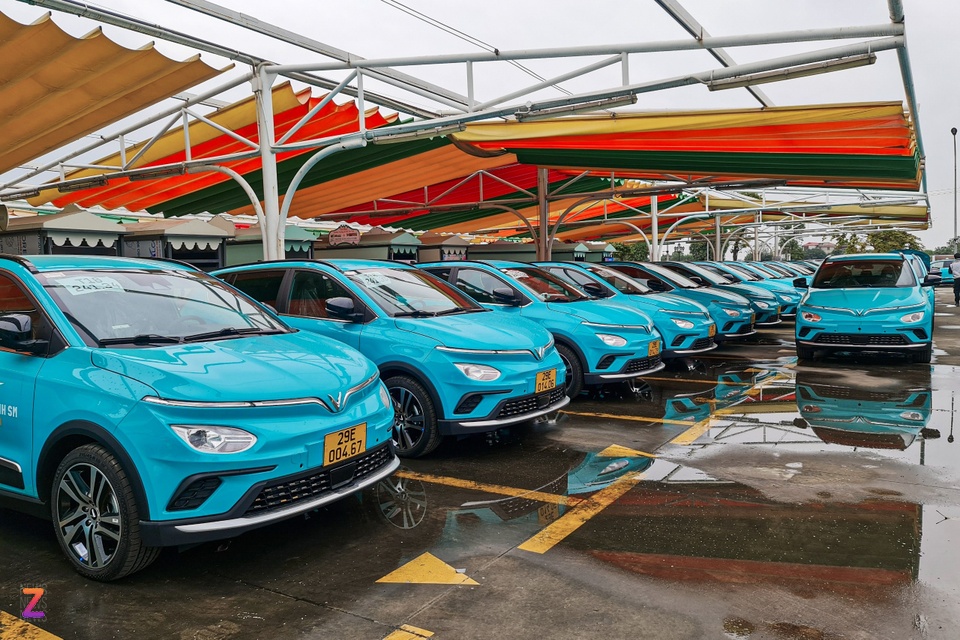
|
The landscape of service vehicles in Vietnam is evolving, with a shift towards electric cars. Once dominated by the likes of Toyota Vios, Innova, Kia Morning, and Hyundai Grand i10, the market is now embracing a new trend as electric vehicles make their way into the country.
A Flood of Electric Taxis
Since 2023, a range of new energy vehicles has entered the Vietnamese market, quickly catching the attention of taxi companies. Leading the way, Lado Taxi adopted VinFast electric cars to serve passengers at Lien Khuong Airport in Lam Dong Province in mid-2022.
| |
|
Lado Taxi’s fleet of VinFast electric vehicles. Photo: GSM. |
In April 2023, VinGroup established Xanh SM, which rapidly became the largest electric taxi company in Vietnam, with the VF e34 and VF 5 as its flagship models. Other taxi companies, such as Sun Taxi, Bach Dai Dung in Ha Tinh, En Vang in Hai Phong, Xanh Sapa in Lao Cai, and Airports in Hanoi, have also joined the “electrification” trend by adding VinFast electric vehicles to their fleets through purchase and lease agreements.
The Wuling miniEV has also made its mark in inner-city transportation services, with companies like Let’s Go Taxi and Togo adopting it. Even long-distance coach companies have started using this mini electric car for shuttle services to their stations.
| |
|
Let’s Go Taxi’s Wuling miniEV fleet. Photo: TMT Motors. |
Recently, Xuan Quynh (Thai Duong) Company purchased 50 BYD M6 electric vehicles for their service fleet, becoming the first company to introduce BYD electric cars into the passenger transportation industry.
In addition to large taxi companies, many individuals have also invested in electric cars from VinFast, such as the VF 7 and VF 8, for transportation services, partnering with ride-hailing apps like Grab and Be Car, or offering self-drive and chauffeur-driven rental services. The presence of yellow-plated electric cars from BYD and VinFast is becoming more prominent on the roads of Ho Chi Minh City, indicating the appeal of electric vehicles in the service car sector.
Hybrid Cars Also in the Mix
Apart from fully electric cars, some taxi companies are embracing the “green” trend by adopting hybrid vehicles. Toyota currently offers the widest range of hybrid models, making it a popular choice for traditional taxi companies. In mid-2024, Vinasun, a well-known taxi company, added the Toyota Yaris Cross HEV to its fleet and announced plans to include the Innova Cross HEV in its new taxi lineup to serve customers nationwide.
| |
|
Vinasun’s hybrid taxi fleet. Photo: Vinasun. |
Mai Linh, another prominent taxi company, has also announced plans to invest in 9,999 Toyota hybrid SUVs to “green” their existing fleet. By 2027, Mai Linh aims to complete this green initiative, focusing on passenger transportation in major cities like Hanoi and Ho Chi Minh City.
The hybrid market in Vietnam is further diversified with offerings from Honda and Kia, while Chinese hybrid and plug-in hybrid (PHEV) models, such as the BYD Sealion 06 and Jaecoo J7, are also making their way into the country.
What’s Next for Gasoline Cars?
The success of electric vehicles in the service car market is evident in their sales figures. According to VinFast, the domestic electric car manufacturer sold over 87,000 units in 2024, with a significant contribution from the VF 5 SUV, a popular choice for Xanh SM.
TMT Motors, the distributor of Wuling cars in Vietnam, has also received substantial orders from service car companies. As of November 2024, they are supplying 500 Wuling miniEVs to Let’s Go Taxi, with additional contracts for 400 Wuling Bingo and 600 MiniEV units. Moreover, they have sold over 100 Wuling miniEVs to TOGO Group for passenger transportation. In just one year, TMT Motors has sold more than 1,600 electric vehicles specifically for service car purposes.
Electric and hybrid vehicles have made their way into the taxi and service car industry, ranging from small cars to MPVs and SUVs. Consequently, this shift has impacted the market share of conventional gasoline-powered vehicles.
The most noticeable impact is on the small car segment, particularly the Kia Morning and Hyundai Grand i10, which were once popular choices for service car drivers and taxi companies. However, their presence in sales rankings has diminished. In 2024, the entire segment sold only 9,261 small cars, a significant drop from the 47,280 units sold in 2020, representing an over 80% decline.
While the Toyota Vios and Hyundai Accent, popular sedans in the B-segment, have not witnessed a drastic decline in sales, they are also losing their appeal among service car customers.
|
Toyota Vios (left) and Hyundai Accent (right). Photo: Duc Tran. |
The Toyota Vios, once the “king” of the B-segment sedans, has slipped down the overall sales rankings to the fifth position in the market. Similarly, the Hyundai Accent, a close competitor, has dropped to sixth place with 13,538 units sold in 2024.
Currently, the top-selling models in the service car market are the Mitsubishi Xpander and Xforce, both gasoline-powered MPVs. However, with the introduction of the BYD M6 in Vietnam, some fleet owners and taxi companies are already showing interest in switching to electric MPVs.
With VinFast’s upcoming launch of the Limo Green, a 7-seater electric MPV specifically targeting the service car market, the competition for gasoline-powered MPVs is expected to intensify.
Recommended Reads for Your Journey
Our Automotive section offers a diverse range of book recommendations to keep you engaged during your travels. Whether you’re waiting for a ride or taking a break from the road, these titles will make for great companions.
The Southeast Asian Auto Market: Japanese Cars Reign, VinFast Makes Strides with Electric Vehicles
With nearly 1 million vehicles delivered to customers in Southeast Asia, Toyota remains the leading automotive brand in the region in 2024. The market also witnessed the rise of homegrown brands such as Perodua in Malaysia and VinFast in Vietnam, showcasing the diverse preferences and evolving landscape of the automotive industry in Southeast Asia.
VinFast Signs Mou with Jiga to Expand Service Center Network in the Philippines
VinFast and MGA.414 Corporation, the renowned operator of the JIGA auto service chain, have taken a significant step forward by signing a Memorandum of Understanding (MOU) to expand VinFast’s electric vehicle service network in the Philippines. With this partnership, the goal is to establish over 100 dedicated workshops across the country within this year, marking a substantial expansion in the Philippines market.

